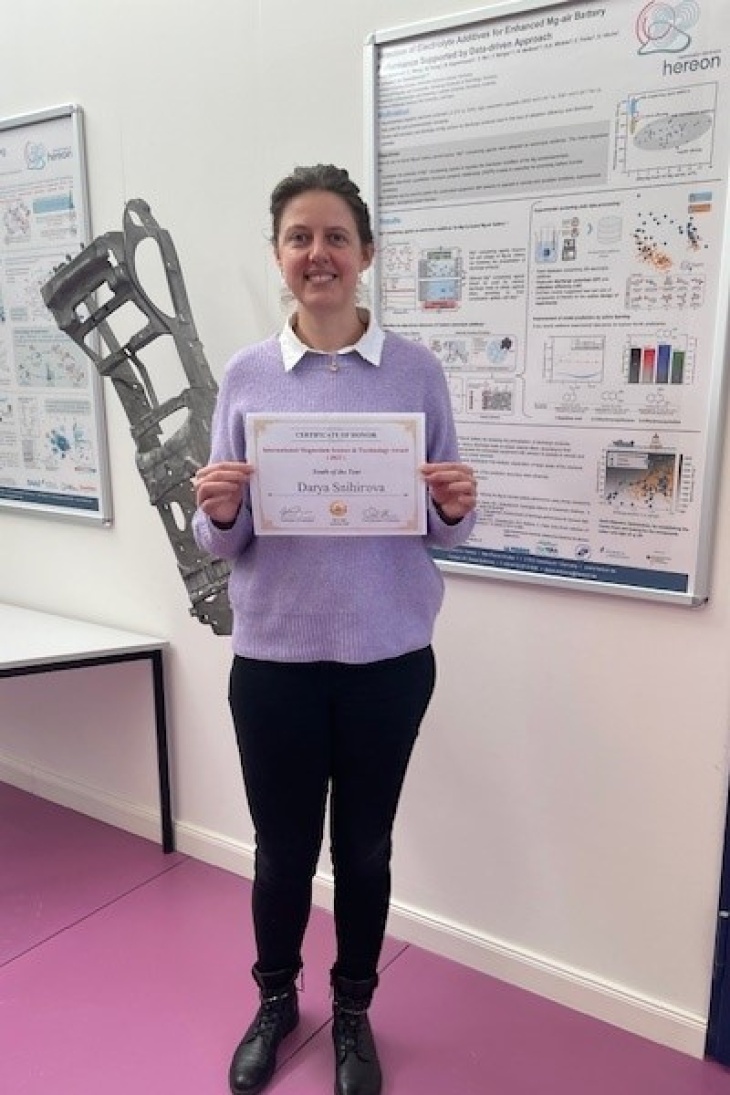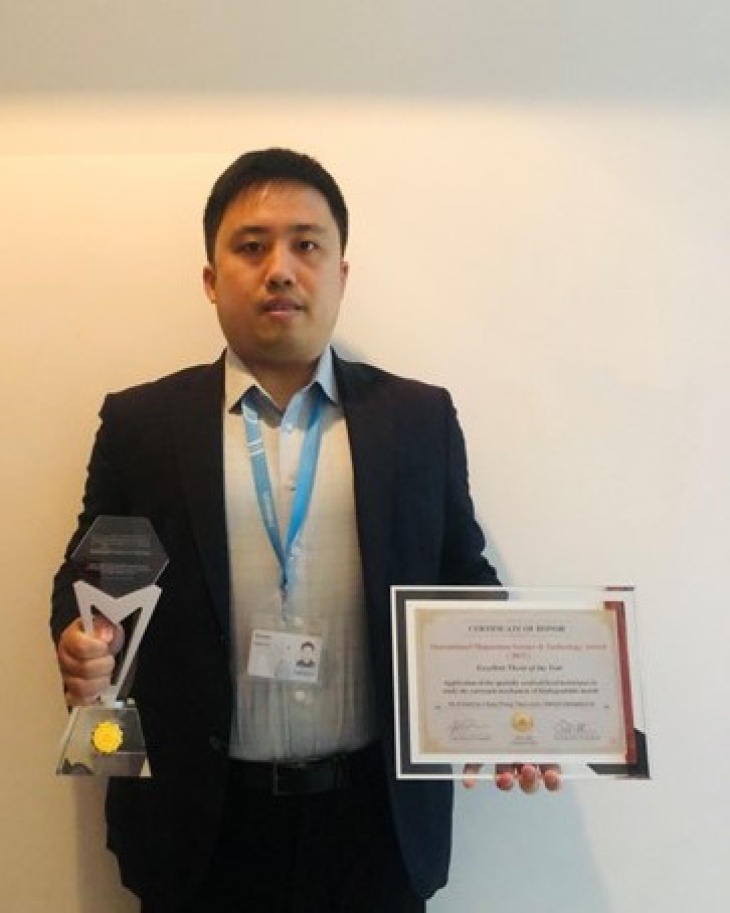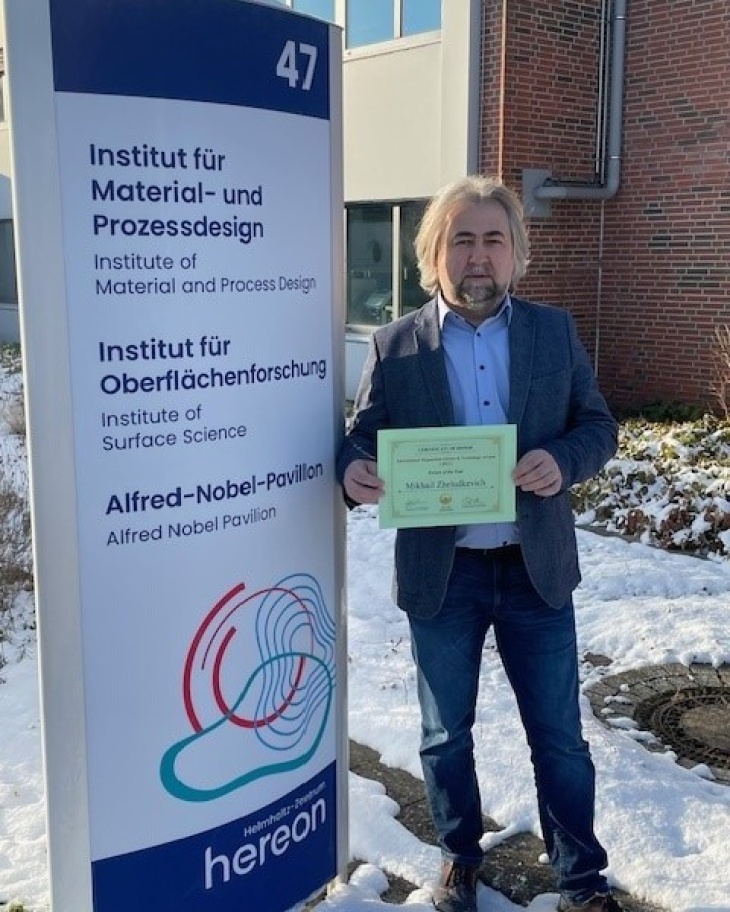IMS Award 2023
International Magnesium Science & Technology Award is founded by International Mg Society (IMS), Journal of Magnesium and Alloys (JMA), Caixing foundation, and other organizations with great importance to reward individuals or groups who have made important contributions to magnesium science and technology, with the aim to promote the development of magnesium science and technology, and to attract more scientists and engineers to engage in research, development and applications of magnesium and its alloys.
International Magnesium Award for Youth of the Year

D. Snihirova Foto: A.Franke/Hereon
Dr. Darya Snihirova has made contributions to the field of Mg-air batteries which collectively advance progress in the field of Mg anode development and design of the electrolyte. Mg-air aqueous batteries are promising power sources attributed to the excellent theoretical electrochemical properties of Mg metal such as the high theoretical energy density of 2840Wh/kg and a low negative electrode potential of − 2.37 V vs. SHE. Mg is abundant in the earth's crust and are considerably cheaper than Li.
However, during the discharge Mg anode is prone to self-corrosion with formation of an insoluble film of magnesium hydroxide and generation of hydrogen. Her research addresses the issues such as minimization of Mg self-corrosion, increasing battery voltage and environmental compatibility by using electrolyte additives. In order to facilitate the challenge of finding efficient additives, the computer-assisted methods were adopted.
Use of AI in the discovery of electrolyte additives unlock several structures that lead to a particularly high utilization efficiency and specific energy. This discovery greatly increases the number of potential systems that may boost the battery performance.
International Magnesium Award for Excellent Thesis of the Year

C. Wang Foto:privat
Dr. Cheng Wang has made groundbreaking contributions to understanding of metal biodegradation especially for Mg. His thesis explores the corrosion processes in Mg, Zn, and Fe alloys using innovative spatially resolved techniques. Notably, his work uncovered the unexpected prominence of the Oxygen Reduction Reaction (ORR) and interfacial pH dynamics during Mg corrosion.
These findings challenge conventional wisdom and have significant implications for biodegradable materials. Dr. Wang's dedication, analytical prowess, and innovative research make him an outstanding candidate for the International Magnesium Award for Excellent Thesis of the Year, and his work promises to reshape the field of biodegradable metals.
International Magnesium Award for Person of the Year

M. Zheludkevich Foto: A. Franke/Hereon
A new concept of corrosion inhibition of Mg was introduced by group of Prof. Dr. Zheludkevich recently and resulted in a high response in the community.
Moreover, the approach of AI-based structure-property relationships to find in-silico magnesium dissolution modulators was successfully developed and can be used to explore not only the efficient corrosion inhibitors for magnesium but also additives to primary Mg batteries. Using such additives together with design of new Mg micro-alloyed anodes allowed to significantly boost performance of Mg-Air batteries.
